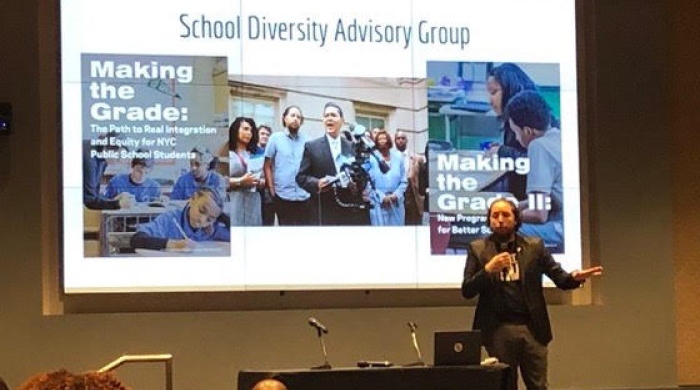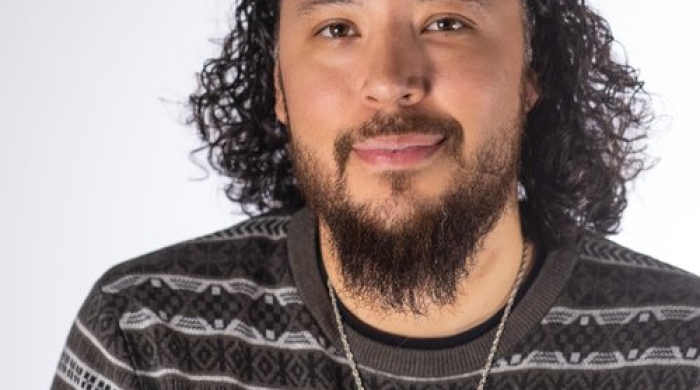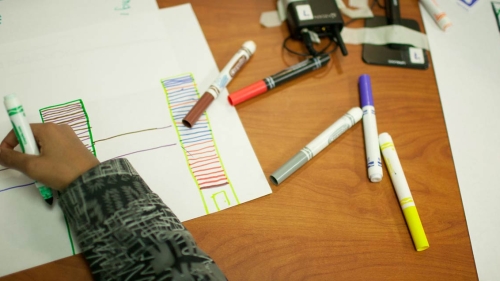NYU Steinhardt’s Matt Gonzales, an educator, advocate, and policy analyst, uses his expertise in supporting community-based organizations to work with stakeholders throughout New York State to improve justice and equity in education.
Gonzales works out of NYU Steinhardt’s Metropolitan Center for Research on Equity and the Transformation of Schools (Metro Center), which focuses on developing equity and access in school settings, especially involving issues of race, gender identity, ethnicity, socioeconomic status, and other historically marginalized identities.
Gonzales joined Metro Center in 2019 as founding director of the Integration and Innovation Initiative (i3), which works with districts, schools, and communities in the United States and beyond to design and develop innovative and equitable solutions to educational segregation. Among other roles, i3 provides support for the work of the New York City Alliance for School Integration and Desegregation (nycASID), which was created out of Metro Center in 2018, and recently launched the Real Integration Hub, an online resource hub that hosts all of the history, policy, and resources developed over the past seven years.
Matt Gonzales
“Metro Center began four decades ago as a federal technical assistance center to support desegregation,” says Gonzales. “Over the years, that work has evolved and expanded. I see desegregation and integration as part of the unfinished work of education and racial justice and have been proud to reassert the Metro Center as a national leader on school integration.”
Gonzales is currently director of the Education Justice Research and Organizing Collaborative (EJ-ROC), which provides organizational, technical, and research support to local and state-wide groups seeking educational justice.
“We’re helping build and support a coalition of grassroots organizations that focus on racial justice and equity in the education space by writing policy papers, building out their infrastructure and websites, and providing ongoing strategic support – whatever our partners need,” says Gonzales.
For example, EJ-ROC helped parent leaders from the NYC Coalition for Educational Justice (CEJ) produce a report highlighting the disparities in representation within the New York City public school curriculum and readings and the diversity of the children who attend those schools.
“The parents were saying, ‘Our kids aren’t in these books,’” says Gonzales. “Here, we helped them acquire the data they needed and produced a report to back the shift in priorities that these parent leaders were demanding from the school system.”
One of EJ-ROC’s big roles is bridging the gap between the needs of the community and the schools’ policies and practices. How do we build racially just schools that are deserving of our kids, and what training and resources do our teachers need in order to meet these demands?
This report helped launch CEJ’s multi-year campaign that led to a $23 million dollar investment for Implicit Bias training, the adoption of a definition and framework for Culturally Responsive and Sustaining Education (CRSE) by the New York City Department of Education (NYCDOE), and current training and learning communities for CRSE.
EJ-ROC is also conducting a national curriculum research project to examine inclusion throughout some of the largest book companies that supply the education space.
“One of EJ-ROC’s big roles is bridging the gap between the needs of the community and the schools’ policies and practices,” says Gonzales, himself a former middle school math and special education teacher. “How do we build racially just schools that are deserving of our kids, and what training and resources do our teachers need in order to meet these demands?”
Along these lines, EJ-ROC and its community partners collaborated with the NYCDOE to adopt a formal definition of CRSE in 2019. Currently, EJ-ROC and its fellow school change subunits – the Center for Strategic Solutions (CSS) and Innovations in Equity and System Change (IESC) – launched a training series and professional learning community containing more than 100 school teams. The series promotes professional understanding of CRSE across the school system and helps make changes to school accountability and reporting systems to incorporate CRSE.
“EJ-ROC and our partners have developed a large portfolio of deep community work to help transform the educational system with research and action,” says Gonzales. “We can help move important agenda items forward by working outside of, within, and together with the schools to provide an equitable education for the City’s children.”
Gonzales also worked closely with State education leaders to design the New York State Integration Project (NYSIP) grant program and has supported districts all across New York in developing integration plans. Nationally, Matt serves on the Steering Committee for the National Coalition on School Diversity and is an advisory board member for Integrated Schools, a grassroots parent network committed to integrated schools.
Related Articles
EJ-ROC partnered with Chalkbeat to survey NYC students on their priorities for schooling during COVID-19.
The report explores student responses from a survey of New York City K-12 students about the reopening of schools for Fall 2020.
Metro Center and EJ-ROC created guidance on culturally responsive remote learning and parent engagement
NYU Steinhardt's Metro Center and EJ-ROC created guidance on culturally responsive remote learning and parent engagement. Read more on Metro's Culturally Responsive Education (CRE) Hub.
NYU Metro Center's i3 Director Presents on Integration at the National Education Association
NYU Metro Center is a member organization of the National Coalition on School Diversity (NCSD), a network of civil rights organizations, university based organizations, and state and local coalitions working to expand policies and practices to support integration.




